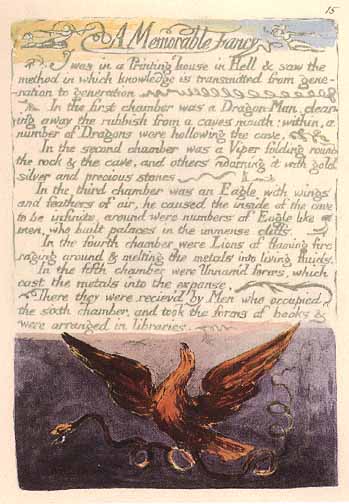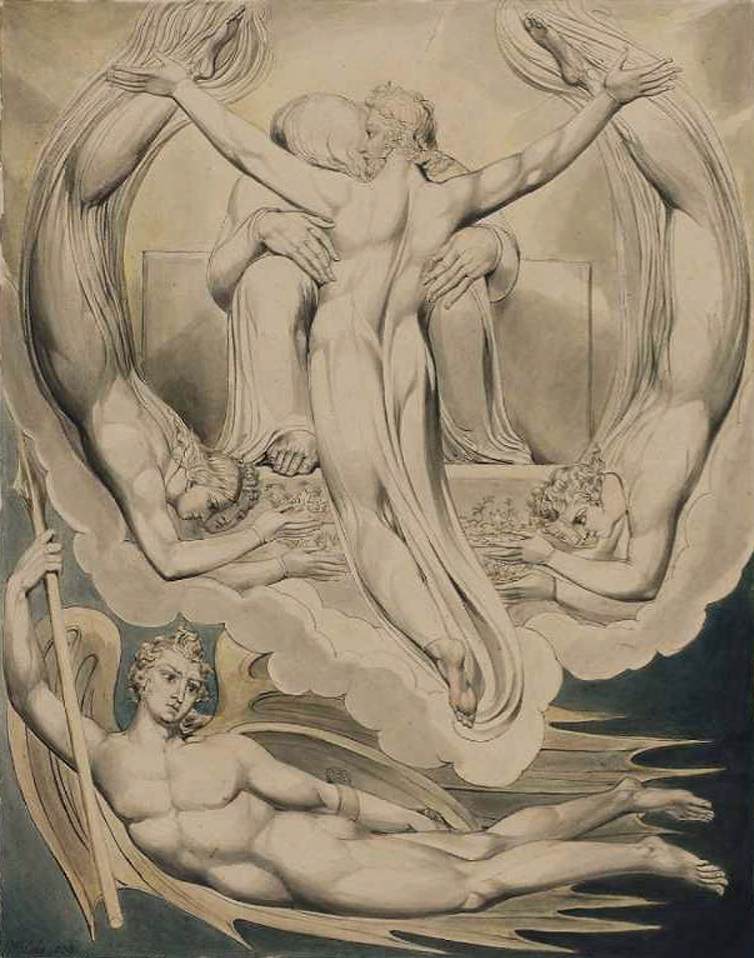As a continuation of the study of Blake's accounts of the fall we look to the Bard's Song as the first segment of Milton is called. James Rieger calls the Bard's song 'a prophet's account of the fall of prophecy itself.' (Blake's Sublime Allegory, Page 271)
Those familiar with Milton know of the account of the dispute between Palamabron and Satan which resulted in a hearing before the Great Solemn Assembly. Unexpectedly, it was Rintrah against whom the judgment went.
Why the Innocent should be condemn'd for the Guilty is asked before the Assembly. We might say that Blake took the rest of the poem answering that question. But first we learn that to avoid condemning the guilty to eternal death, one must die for another throughout all Eternity. (We are reminded here of Blake's lines 'Throughout all Eternity I forgive you, you forgive me.')
"And it was enquir'd: Why in a Great Solemn Assembly
The Innocent should be condemn'd for the Guilty?
Then an Eternal rose
Saying.
If the Guilty should be condemn'd, he must be an Eternal Death
And one must die for another throughout all Eternity.
Satan is fall'n from his station & never can be redeem'd
But must be new created continually moment by moment
And therefore the Class of Satan shall be calld the Elect, & those
Of Rintrah. the Reprobate, & those of Palamabron the Redeem'd
For he is redeem'd from Satans Law, the wrath falling on Rintrah,
And therefore Palamabron dared not to call a solemn Assembly
Till Satan had assum'd Rintrahs wrath in the day of mourning
In a feminine delusion of false pride self-deciev'd.
So spake the Eternal and confirm'd it with a thunderous oath
But when Leutha (a Daughter of Beulah) beheld Satans condemnation
She down descended into the midst of the Great Solemn Assembly
Offering herself a Ransom for Satan, taking on her, his Sin.
Mark well my words. they are of your eternal salvation!"
A process is begun through which the guilty may avoid eternal death. It begins with the creation of states through which man passes to gain experience. ' Palamabron dared not to call a solemn Assembly' and interrupt the process which had been initiated. Two steps involved in the process are Satan's assuming a false wrath and a false pride. In the state of Satan, man will undergo experiences which convince him of the error of 'Rintrah's wrath' and the 'feminine delusion of false pride'. Leutha appears on the scene offering to take on the sin of Satan. Leutha recounts a tale of how through tempting Palamabaron she is able to 'unloose the flaming steeds' which Satan is unable to control:
Milton, Plate 12 [13], (E 105)
"At length standing upon the golden floor of Palamabron
She spake: I am the Author of this Sin! by my suggestion
My Parent power Satan has committed this transgression.
...
"Like sweet perfumes I stupified the masculine perceptions
And kept only the feminine awake, hence rose his soft
Delusory love to Palamabron: admiration join'd with envy
Cupidity unconquerable! my fault, when at noon of day
The Horses of Palamabron call'd for rest and pleasant death:
I sprang out of the breast of Satan, over the Harrow beaming
In all my beauty! that I might unloose the flaming steeds"
Plate 12 (13), (E 106)
"Day sunk and Palamabron return'd, trembling I hid myself
In Satans inmost Palace of his nervous fine wrought Brain:
For Elynittria met Satan with all her singing women.
Terrific in their joy & pouring wine of wildest power
They gave Satan their wine: indignant at the burning wrath.
Wild with prophetic fury his former life became like a dream
Cloth'd in the Serpents folds, in selfish holiness demanding purity
Being Most impure, self-condemn'd to eternal tears, he drove
Me from his inmost Brain & the doors clos'd with thunders sound
O Divine Vision who didst create the Female: to repose
The Sleepers of Beulah: pity the repentant Leutha.
My
PLATE 13 [14]
Sick Couch bears the dark shades of Eternal Death infolding
The Spectre of Satan. he furious refuses to repose in sleep
I humbly bow in all my Sin before the Throne Divine.
Not so the Sick-one; Alas what shall be done him to restore?
Who calls the Individual Law, Holy: and despises the Saviour.
Glorying to involve Albions Body in fires of eternal War--
Now Leutha ceas'd: tears flow'd: but the Divine Pity), supported her.
All is my fault! We are the Spectre of Luvah the murderer.
Of Albion: O Vala! O Luvah! O Albion! O lovely Jerusalem
The Sin was begun in Eternity, and will not rest to Eternity
Till two Eternitys meet together, Ah! 
lost! lost! lost! for ever! So Leutha spoke.
But when she saw that Enitharmon had
Created a New Space to protect Satan from punishment;
She fled to Enitharmons Tent & hid herself.
Loud raging
Thundered the Assembly dark & clouded, and they ratify'd
The kind decision of Enitharmon & gave a Time to the Space,
Even Six Thousand years; and sent Lucifer for its Guard."
Image: Satan, Sin & Death
Milton's Paradise Lost
Thus began the Seven Eyes of God, the seven periods of human history which are prepared to return man through the mortal world to Eden.
 When late in life Blake was commissioned to illustrate the Divine Comedy, he went about the task with enthusiasm but skepticism. A particular illustration in which the giant Antaeus transports Virgil and Dante to a lower circle of hell as per their request, gave Blake an opportunity to show a benevolent giant gently placing the two pilgrims on the ledge below. If Blake was making a bit of a joke by picturing an acrobatic giant clinging to the cliftside with an expression of loving concern on his face, some think that Dante too was making a joke with Virgil's negotiations with Antaeus.
When late in life Blake was commissioned to illustrate the Divine Comedy, he went about the task with enthusiasm but skepticism. A particular illustration in which the giant Antaeus transports Virgil and Dante to a lower circle of hell as per their request, gave Blake an opportunity to show a benevolent giant gently placing the two pilgrims on the ledge below. If Blake was making a bit of a joke by picturing an acrobatic giant clinging to the cliftside with an expression of loving concern on his face, some think that Dante too was making a joke with Virgil's negotiations with Antaeus.
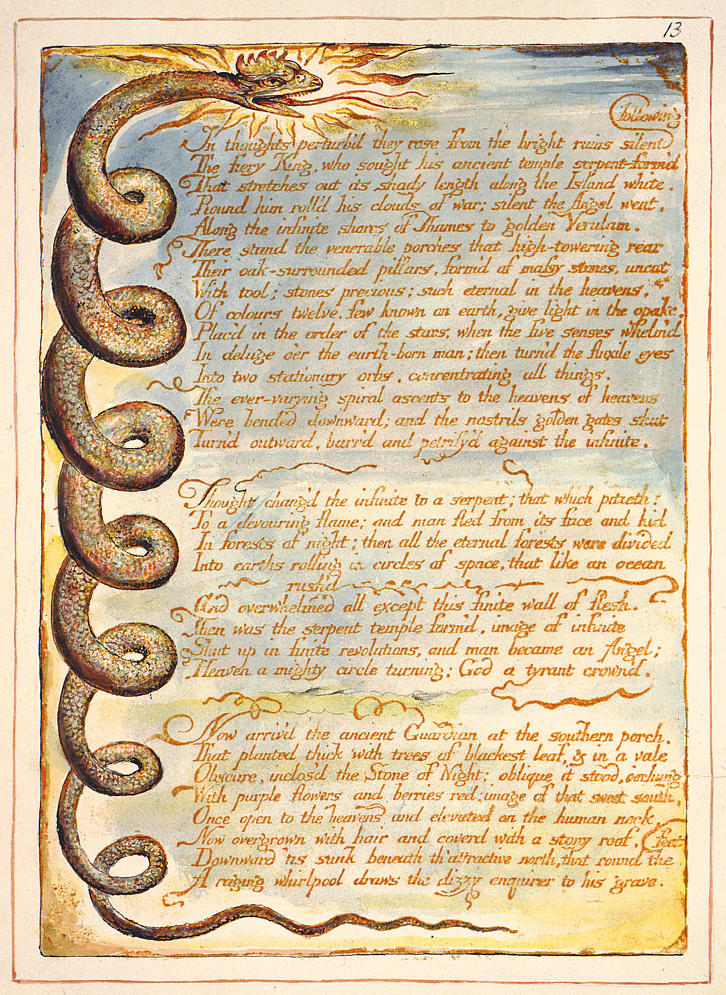
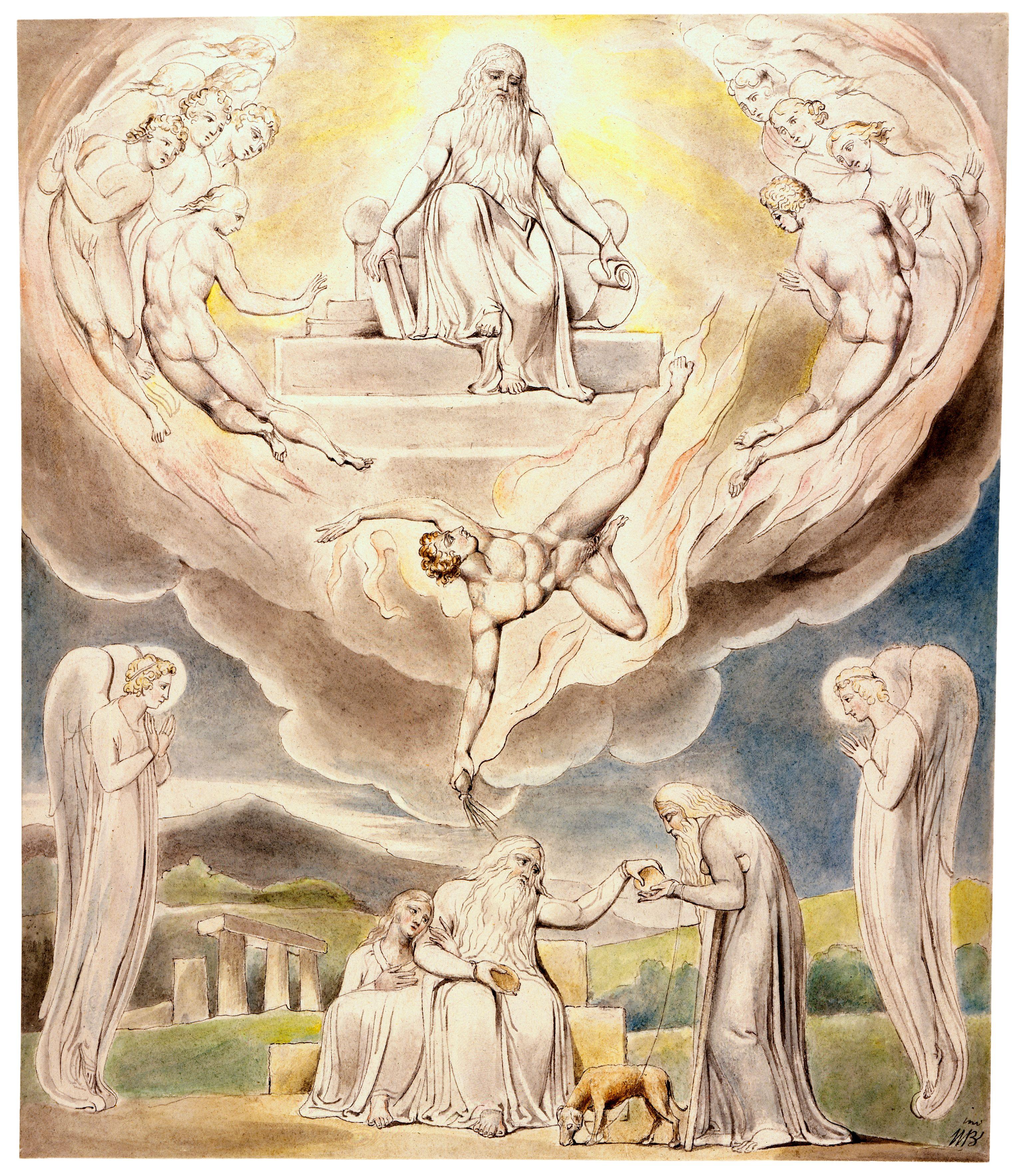

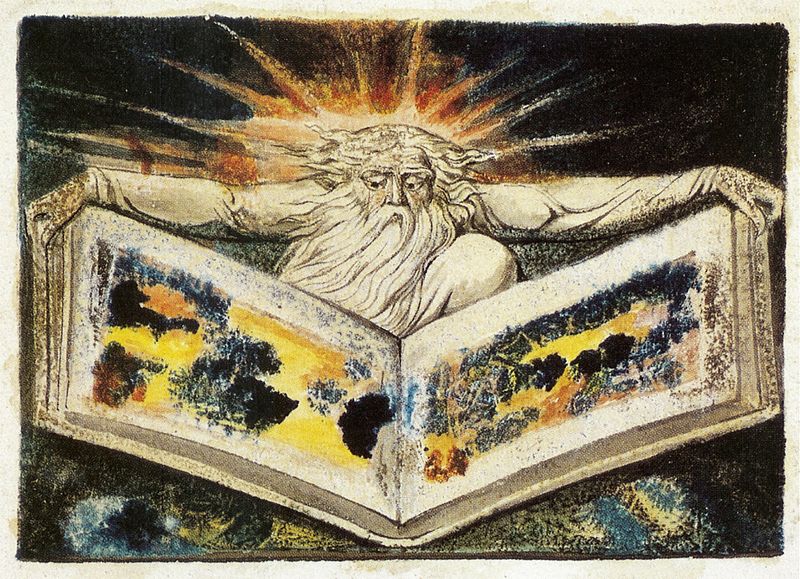
_Detail.jpg)
